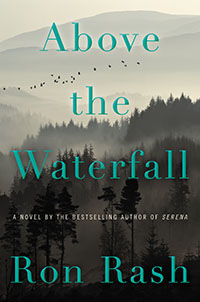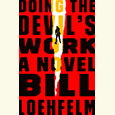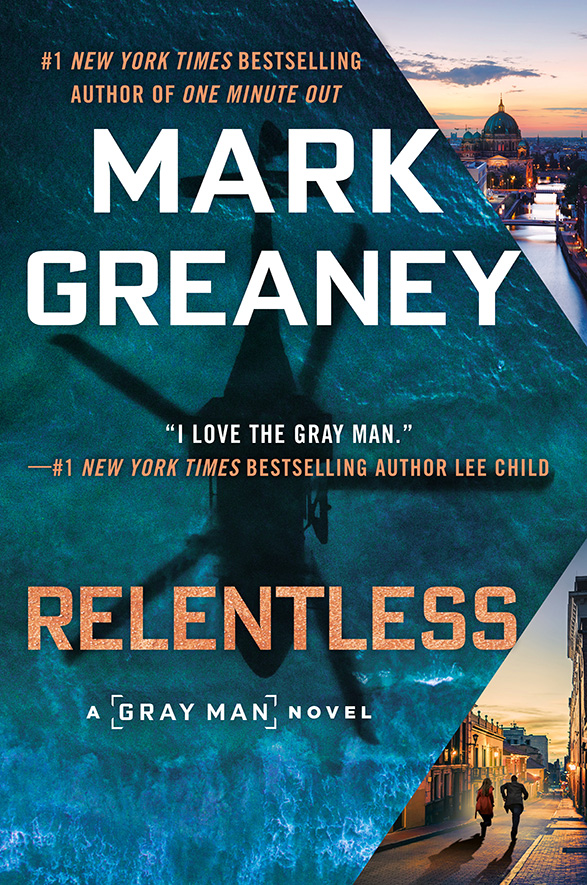The World Will Still Be the World
With Above the Waterfall Ron Rash delivers another lyrical and devastating novel of Appalachia
In recent years, Ron Rash has become one of those writers whose name carries a certain weight and expectation. Few novelists achieve the status of his or her respective region’s representative voice: Faulkner’s Mississippi; Bellow’s Chicago; McCarthy’s Southwest; Didion’s California; Ron Rash’s Appalachia. Indeed, no author working today has more skillfully spanned the breadth of Appalachian experience, from the Civil War stories of Something Rich and Strange through the empire building of Serena to the meth-ravaged desolation of recent story collections. With Above the Waterfall, Rash delivers another rich paean to his North Carolina mountains, imbued with his trademark empathy for the scarred and haunted, his poetic evocation of both the small and sweeping features of the natural world , and his searing criticism of the human failures that eat away at the heart and soul of Appalachia.
 Rash is still best known to the general reading public as the author of Serena, his bestselling novel about the Machiavellian wife of a timber baron in 1930s Western North Carolina. Among literary aficionados, however, Rash has long been regarded as a poet with a gift for haunting verse and an author of stark, harshly realistic short stories depicting the hardscrabble lives of mountain folk in a variety of historical contexts. In Above the Waterfall, Rash has deftly fused his varying obsessions, crafting a structure that enables him to infuse his story with lyric poetry and continue his social critique of the imperilment of Appalachian culture while simultaneously delivering a taut, noirish tale of crime, betrayal, and doomed loyalty.
Rash is still best known to the general reading public as the author of Serena, his bestselling novel about the Machiavellian wife of a timber baron in 1930s Western North Carolina. Among literary aficionados, however, Rash has long been regarded as a poet with a gift for haunting verse and an author of stark, harshly realistic short stories depicting the hardscrabble lives of mountain folk in a variety of historical contexts. In Above the Waterfall, Rash has deftly fused his varying obsessions, crafting a structure that enables him to infuse his story with lyric poetry and continue his social critique of the imperilment of Appalachian culture while simultaneously delivering a taut, noirish tale of crime, betrayal, and doomed loyalty.
Les, the sheriff of a small mountain town just a week away from retirement, finds himself embroiled in two separate but equally troubling crises that can’t be kicked down the road. One relates to the illegal use of a prime trout-fishing stream on the property of a luxury mountain resort. Gerald, an aging local, has incurred the wrath of a wealthy developer by trespassing on the resort’s property. Les is torn between duty and loyalty, both to the community Gerald represents and to Becky, a park ranger with whom Les shares a close friendship nearing romantic intimacy. Rash shifts the point of view between Les and Becky, enabling them to reflect on each other and on their past traumas. (Les’s marriage ended after his wife attempted suicide; Becky once had a relationship with an Eric Rudolph-type environmental terrorist who was killed by his own bomb.) When the trout stream at issue is mysteriously poisoned, Les and Becky’s relationship is threatened by his suspicion of Gerald and her staunch belief in the old man’s innocence.
Through Becky, Rash is able to indulge his passion for the Appalachian wilderness in frequently stunning language. Take, for instance, his description of Becky standing on a gorge bridge above a stream:
Always a dizzying raft feel first, wood and water both moving, then only water as the bridge staples to the banks. Months past their name, mayflies emerge. Ephemeroptera. Brief lives aloft spent, they drift down light as dandelion spores. A brown trout sips it off the surface. Beneath the trout, mica-flecked sand gleams white. Come fall the female’s dorsal fins will nudge the grains to make a nest, her eggs spilling like pearls into a purse.
These passages of lyrical prose stand in sharp contrast to the darker realities both of the past Becky can’t seem to shake from her conscience and the very real problems of the present, as she tries—perhaps wrongly—to defend Gerald while Les reluctantly works to solve a mystery that grows increasingly complex as the narrative progresses.
 The other problem Les must face, of course, is more sordid and predictable: the scourge of crystal meth, a plague which continues to wreak particularly vicious destruction on the small communities of the rural South. Les leads a meth-lab raid so harrowing that it compels one of his deputies to quit on the spot and attempt to walk twelve miles home, desperate to distance himself immediately from what he’s witnessed. In this moment, Rash’s rebuke of the Hollywood image of meth constructed by the likes of Breaking Bad is clear, and chastening: “Television glamorized meth, even when they tried not to. You didn’t smell the moldy food, or the vomit, shit, or blood, the meth itself burning your nose like ammonia, or how, once you’d arrested them, you turned your face so you didn’t smell their rotting mouths. No, TV couldn’t give you this.”
The other problem Les must face, of course, is more sordid and predictable: the scourge of crystal meth, a plague which continues to wreak particularly vicious destruction on the small communities of the rural South. Les leads a meth-lab raid so harrowing that it compels one of his deputies to quit on the spot and attempt to walk twelve miles home, desperate to distance himself immediately from what he’s witnessed. In this moment, Rash’s rebuke of the Hollywood image of meth constructed by the likes of Breaking Bad is clear, and chastening: “Television glamorized meth, even when they tried not to. You didn’t smell the moldy food, or the vomit, shit, or blood, the meth itself burning your nose like ammonia, or how, once you’d arrested them, you turned your face so you didn’t smell their rotting mouths. No, TV couldn’t give you this.”
In the end, however, the narrative of Above the Waterfall is driven primarily by the question of who poisoned the trout stream, and why. Along the way we learn that Les is haunted by a few other demons of his own, one of which may influence his judgment more than he’d like to admit. Rash expertly navigates between rich character development, stunning descriptive language, and a twisting plot worthy of Raymond Chandler, working up to a conclusion that is somehow both haunting and reassuring.
This short novel is deceptively complex. The two narrative voices are remarkably distinct, making the shift between points of view occasionally jarring, as Rash alternates between the more abstract, ruminative voice of Becky and the comparatively plainspoken Les. Nevertheless, Above the Waterfall is a fine summation of the gifts of one of our most skillful and morally serious writers at the height of his powers.

Ed Tarkington holds a B.A. from Furman University, an M.A. from the University of Virginia, and a Ph.D. from the creative-writing program at Florida State University. His debut novel, Only Love Can Break Your Heart, will be published by Algonquin Books in January 2016. He lives in Nashville.


